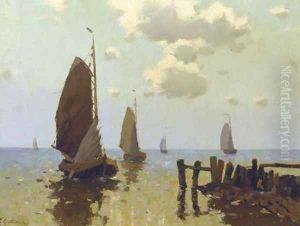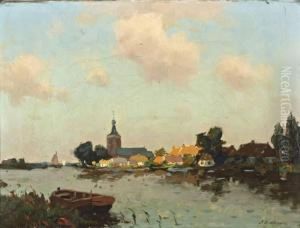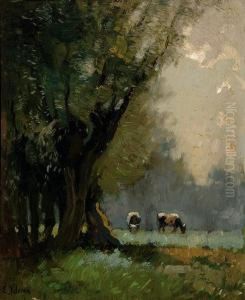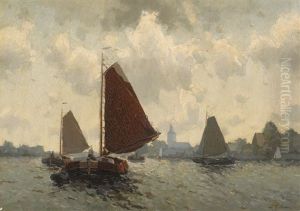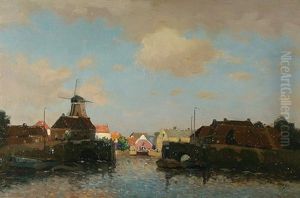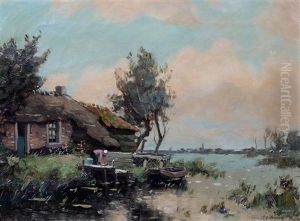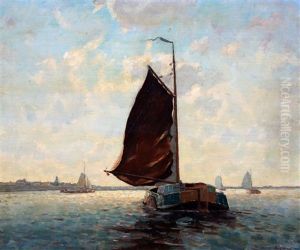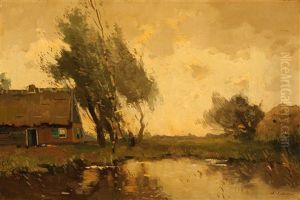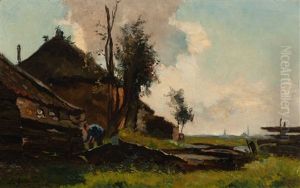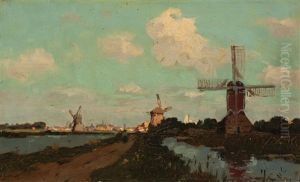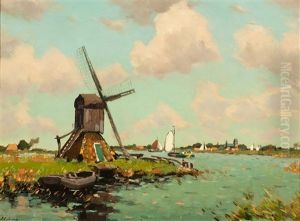Egnatius Ydema Paintings
Egnatius Ydema was a Dutch painter known for his meticulous depiction of domestic interiors, often in the style of seventeenth-century Dutch masters. Born on August 31, 1869, in Bolsward, Netherlands, Ydema's early work showed a strong influence from the Dutch Golden Age of painting, particularly in his use of light and shadow to create depth and atmosphere in his works.
Ydema's career was marked by his dedication to capturing the tranquil and contemplative ambiance of interior scenes. His paintings typically feature well-ordered rooms, with close attention to the texture of materials, the reflective surfaces of metals and glass, and the interplay between indoor lighting and the mood it creates. Despite the quiet nature of his subjects, his compositions are often complex, with a careful arrangement of furniture, objects, and figures that reveal a narrative or a moment in time.
Throughout his life, Ydema exhibited his work in various Dutch cities and gained a modest but dedicated following. He was particularly celebrated for his ability to evoke the serene and meditative quality of domestic spaces, making the ordinary appear extraordinary through his artistry. His work can be seen as a continuation of the Dutch tradition of genre painting, where the focus is on everyday life and the domestic sphere.
Egnatius Ydema passed away on March 13, 1933, in Amsterdam, Netherlands. Although his work was not widely recognized internationally during his lifetime, his paintings have since garnered appreciation from art historians and collectors who value the legacy of Dutch interior genre painting and its influence on modern domestic scenes. Ydema's paintings remain a testament to his skill in capturing the beauty of the mundane and the enduring allure of domestic tranquility.

